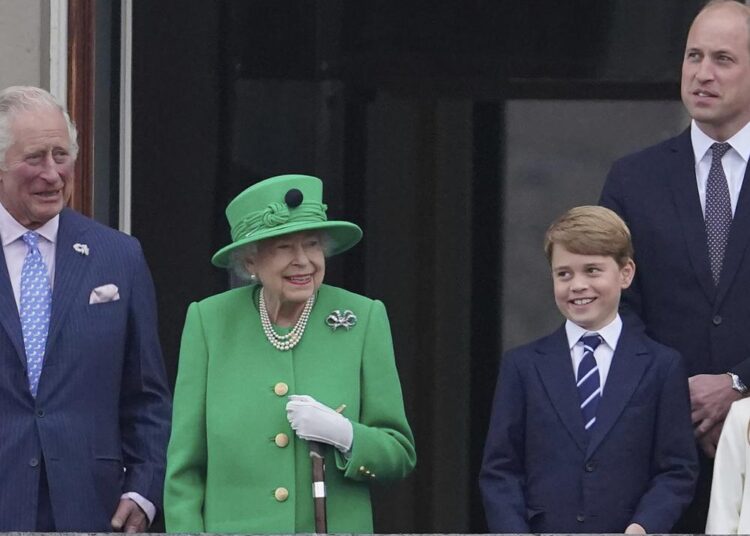LONDON — Extinguish the beacons, take down the stage, roll up the bunting. The party’s over.
After four days of parades, street parties and a gala concert celebrating Queen Elizabeth II’s 70 years on the throne, the Platinum Jubilee celebrations ended Sunday with a queen’s wave from Buckingham Palace and the crowds outside singing “God Save the Queen.”
But as the tributes to Elizabeth’s lifetime of service begin to fade, Britain is left with the reality that the second Elizabethan age is in its twilight.
According to AP, the 96-year-old monarch, limited in recent months by what the palace calls “episodic mobility issues,” made only three brief public appearances during the Jubilee. Her son and heir, 73-year-old Prince Charles, stood in for her at other events.
“Inevitably, we’re going to lose her sometime. And so this will have been a sort of a tail end of a golden reign, won’t it?” historian and royal biographer Hugo Vickers told The Associated Press. “That’s why it’s got a little bit of hint of sadness, I find.”
That truth was the subtext of the weekend’s events as newspapers, TV screens and even the walls of the palace were filled with images of Elizabeth changing from a glamorous young queen in crown and diamonds to a global grandmother known for her omnipresent handbag and love of horses and corgis.
Elizabeth is the UK’s longest-serving monarch, the only sovereign most people have ever known.
That longevity has bred a deep affection for the queen. The question for the House of Windsor is whether the public will transfer those feelings to Charles when the time comes.
From the opening military review to the closing pageant outside the palace, the royal family sought to build a case for that continuity, underscoring the monarchy’s historic traditions and its role as a unifying institution that helps the country celebrate its successes and provides comfort during times of sorrow.
Charles was front and center throughout as he stood in for his mother.
Wearing a ceremonial scarlet tunic and bearskin hat, he reviewed the troops during the Queen’s Birthday Parade on Thursday. The next day, he was the last guest to enter St. Paul’s Cathedral and took his seat at the front of the church for a service of thanksgiving in honor of the queen. At Saturday’s star-studded concert in front of Buckingham Palace, he delivered the main tribute to the woman he addressed as, “Your Majesty, mummy.”
The royals know they have work to do. Over the past year, the monarchy has been buffeted by allegations of racism and bullying, a sex scandal involving Prince Andrew and demands that they apologise for Britain’s historic role in the enslavement of millions of Africans.
But if the Windsors wanted proof of the enduring popularity of all things royal, they need look no further than the tens of thousands who crammed the streets and parks around Buckingham Palace to cheer, wave the Union flag and say “Thank you, ma’am” over the past four days.
Demonstrations of public support are crucial to the monarchy’s survival, said royal historian Ed Owens.






Discussion about this post